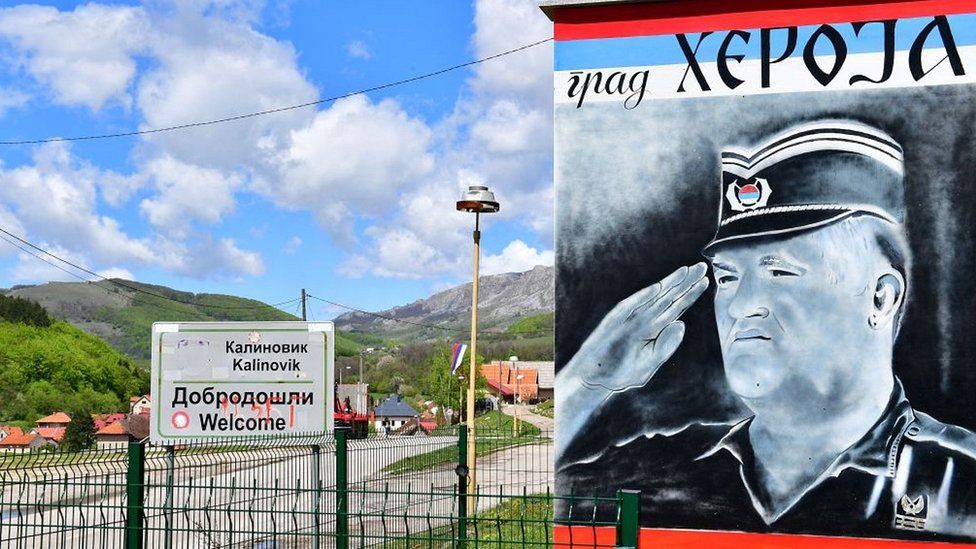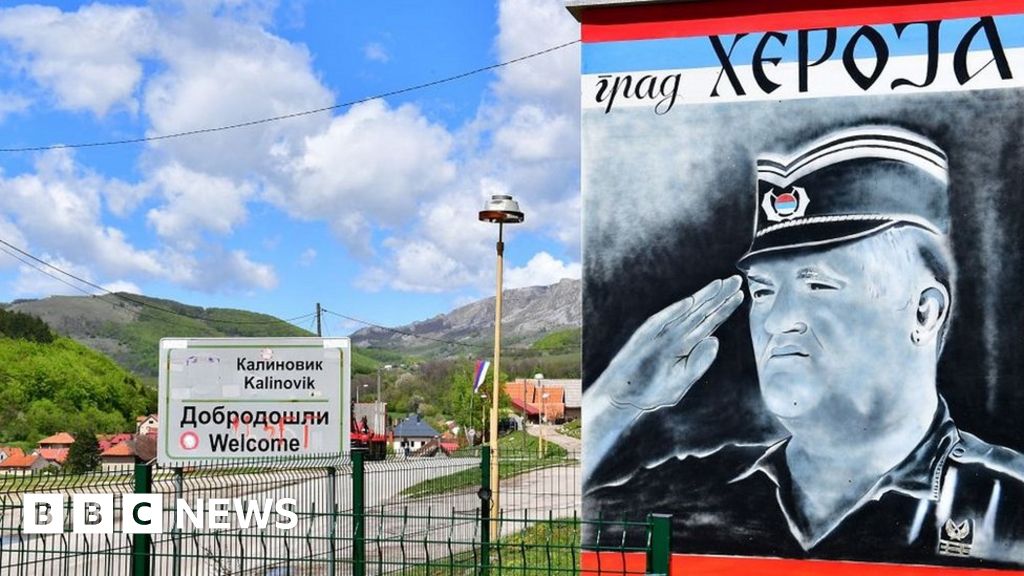
Bosnian Serbs have reacted furiously to a ban on genocide denial imposed by the international official overseeing Bosnia’s 1995 peace deal.
UN-appointed High Representative Valentin Inzko said the ban was needed to stop glorification of war criminals.
“I had to do something – I followed my conscience. If you’re in a country where war criminals are glorified, this cannot be a good future,” he said.
Bosnian Serb politicians are boycotting Bosnia’s multi-ethnic national bodies.
Last month the genocide conviction of Bosnian Serb wartime commander Ratko Mladic was confirmed in The Hague, yet some ethnic-Serb leaders were still acclaiming him as a hero. So Mr Inzko, an Austrian diplomat, said he had to act.
Milorad Dodik, the Bosnian Serb member of the country’s joint presidency, says he will not accept the amendments to the criminal code.
He has launched a petition claiming that the Srebrenica massacre was not an act of genocide – yet such denials may now be punished with a maximum prison sentence of five years.
That massacre was the worst atrocity of the war – forces led by Mladic killed about 8,000 captive Bosnian Muslim (Bosniak) men and boys.
Mr Dodik may now stir up feelings of victimisation in the Serb territory, Republika Srpska.
But Valentin Inzko, just days away from leaving office, is unfazed.
“These reactions were expected,” he told the BBC. “Maybe there will be more graffiti for a short period. But maybe soon there will be less, or it will stop. The posters of Ratko Mladic put up in Srebrenica this week have already disappeared.”
Under the peace settlement, the High Representative has powers to dismiss politicians, push through laws and veto others.
The Bosnian Serb threat to paralyse parliament and the presidency would carry more weight if those institutions were not already enfeebled by ethnic squabbling.
The divide-and-rule policy favoured by many ethnic-Serb, ethnic-Croat and Bosniak Muslim leaders means the real power lies in Bosnia’s two semi-autonomous regions, Republika Srpska (RS) and the Bosniak-Croat Federation.
“I gave local politicians the chance to adopt a [genocide denial] law on their own,” Mr Inzko said. “This would have been best. But four or five efforts have failed – and in the last 10 years there was no possibility to have such a law on genocide denial.”
He had shown much restraint previously, unlike his predecessor, Paddy Ashdown, who sacked many officials for protecting war criminals or otherwise threatening the peace process.
German politician Christian Schmidt takes over from Mr Inzko next month. Soon it will become clear whether the High Representative’s intervention is a one-off or the start of a new normal.
